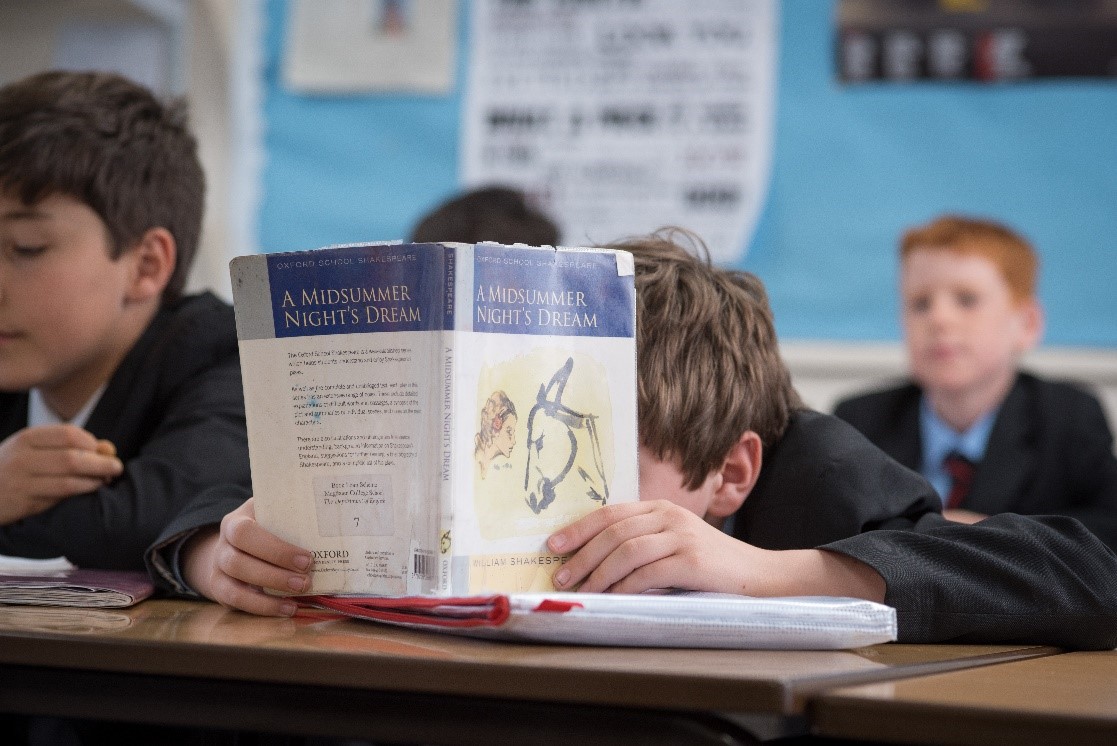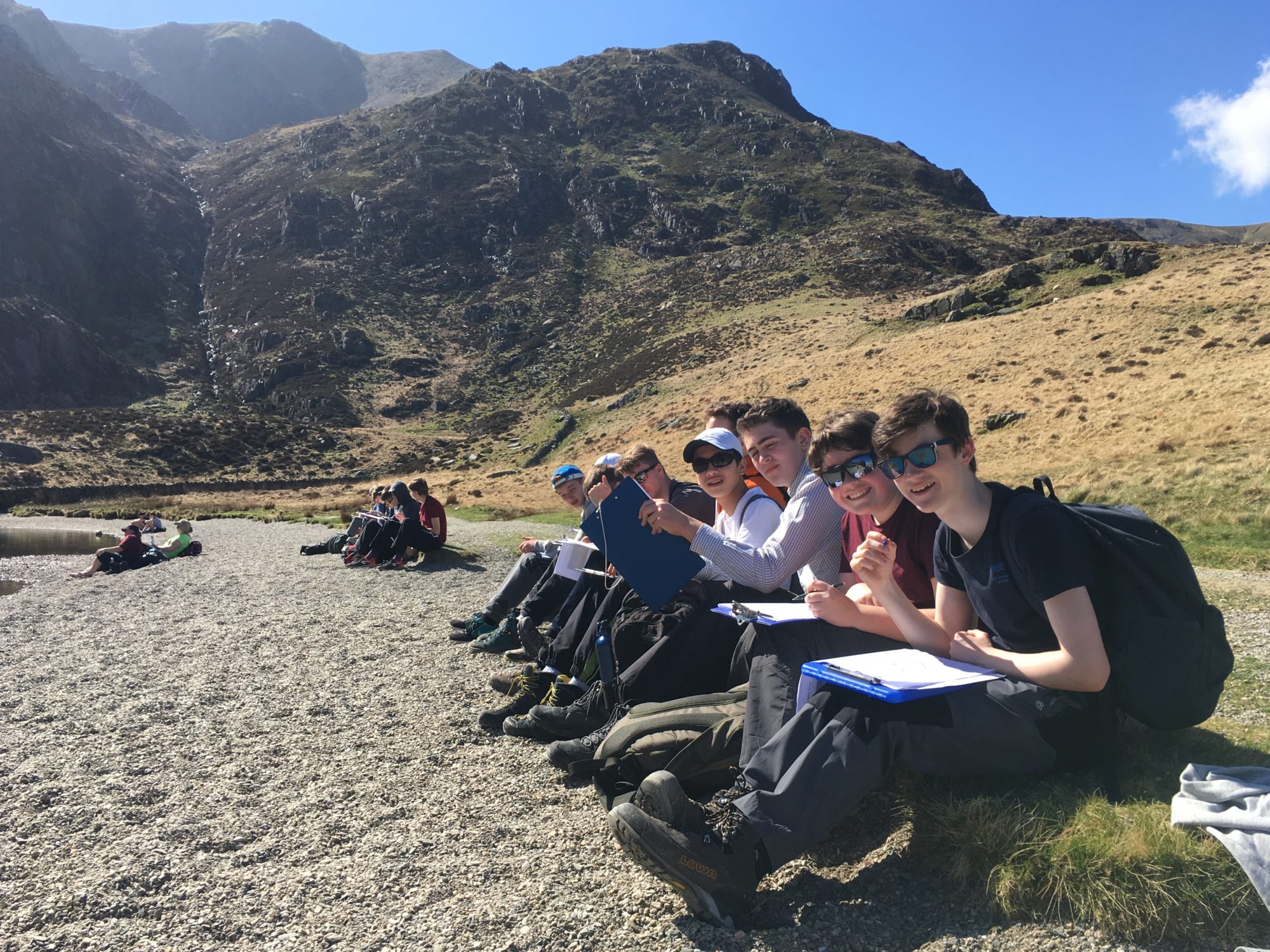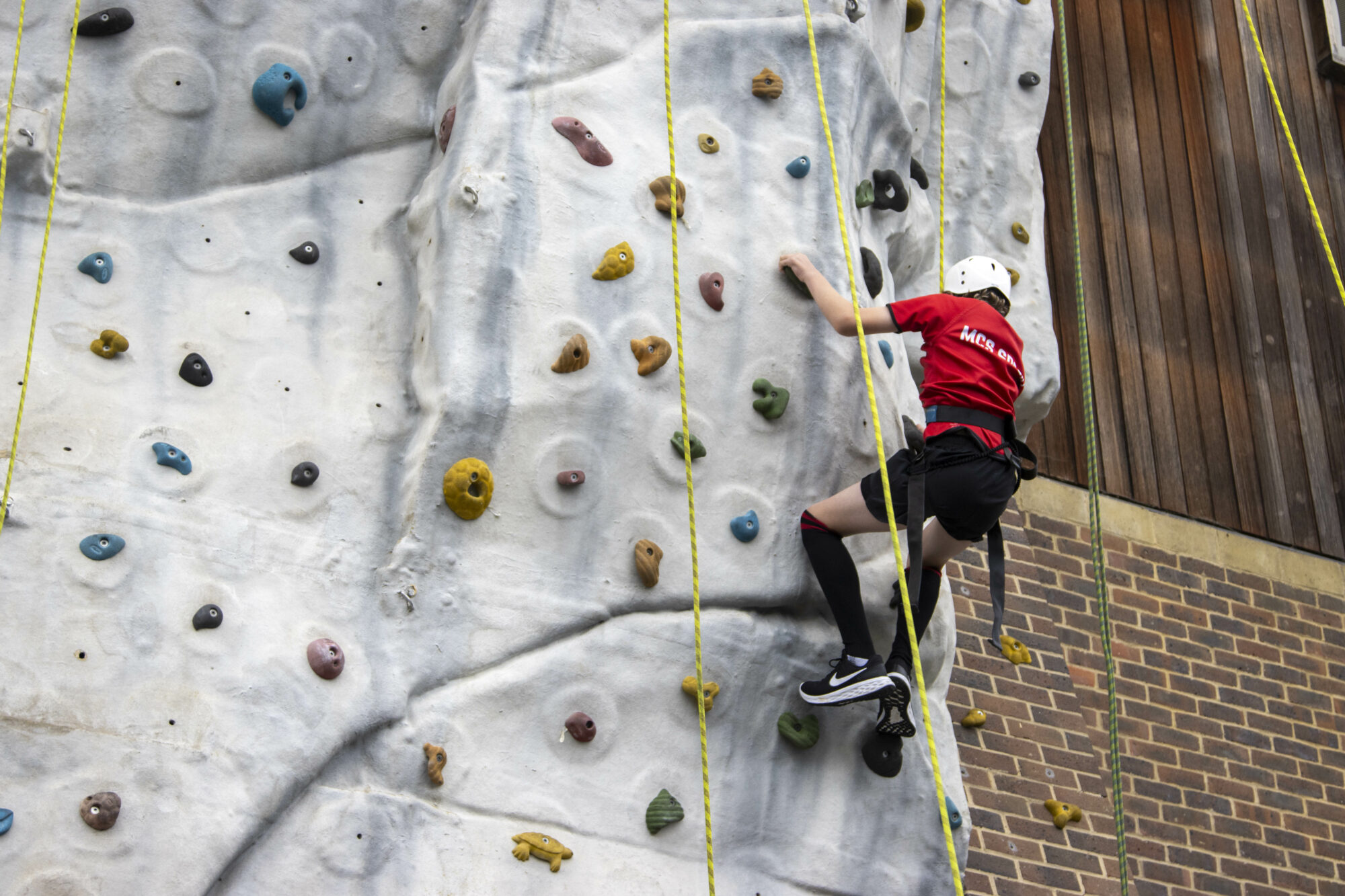English
The study of English brings MCS pupils into contact with some of the most arresting, challenging and exciting writings from the past 650 years. It both sparks and begins to satisfy pupils’ curiosity about the ways people and societies have shaped their responses to the world and to each other.
At MCS, English Literature and English Language are taught at GCSE, while in Sixth Form pupils can study English Literature.
"A reader lives a thousand lives before he dies... The man who never reads lives only one."
George R.R. Martin
Throughout the school, pupils’ enjoyment of reading is nurtured by the study of inspirational prose, poetry and drama. They adopt a critical mindset, learning to question their own assumptions as readers as well as those of the works and cultures they study. And as writers themselves, they are guided in expressing their ideas with power, precision and tact.

‘But words are things, and a small drop of ink, falling like dew, upon a thought, produces that which makes thousands, perhaps millions, think…’
Lord Byron
Lower School
Our aim in these years is to foster a love of literature as well as to ensure the boys are equipped to express themselves with clarity and elegance, orally and on paper. In the Lower School, the development of the boys’ creative and analytical writing skills is driven primarily through the close study of a wide range of poetry, prose and drama, complemented by creative writing, drama-based activities, practice in public speaking and debating, and work on grammar. Boys are encouraged to read widely and deeply through regular library lessons, targeted reading lists, and an annual ‘reading challenge’.
Middle School
After a Lower Fourth in which they begin to think more synoptically and conceptually about literature, boys embark on their GCSE courses in the Upper Fourth and Fifth Form. We follow the AQA GCSEs in both English Language and English Literature, for which they study in detail a Shakespeare play (typically Macbeth), a nineteenth-century novel, an anthology of both canonical and more recent poetry, and a contemporary novel or play. In preparing for English Language, they encounter a wide range of non-fiction prose and literary fiction from the last 200 years, and practise becoming more accomplished writers themselves.
Sixth Form
A Level English Literature introduces pupils to some of the most enjoyable, inspiring writing from the late 1300s to the present day. The OCR course that we follow ranges widely across and beyond the traditional canon, whilst sharpening pupils’ skills in textual analysis. They are encouraged to make connections between the texts studied and to explore them within their intellectual, cultural, social and historical contexts. A Level English fosters essential skills in analysing complex material, approaching problems creatively, evaluating others’ views perceptively, and expressing arguments concisely and persuasively.
By studying human nature, human societies and human thought through literature, students discover much about themselves, each other and the world. They equip themselves with a qualification that sits equally well alongside humanities, languages and science A Levels, and is highly valued by universities and employers.
Refer to the Sixth Form Curriculum guide for a more detailed breakdown of the English Literature programme in Sixth Form.
Further Inspiration
If you are thinking about studying English Literature in the Sixth Form at MCS, you might want to start reading around the subject before you join. Our Study Preparation guides are a useful tool, detailing further reading around key topics.
ENGLISH LITERATURE Study Preparation Guide
Literature is how we make ourselves intelligible to ourselves.
Robert Eaglestone, OW in Contemporary Literature: A Very Short Introduction
Extra-curricular
Pupils take advantage of a very wide range of extra-curricular opportunities in the subject. In the lower and middle schools, a reading group meets regularly, while creative writing is promoted through workshops and competitions, both internal and external, and there is a lower-school student newspaper, the Waynflete Post. The Sixth Form English Society meets weekly and is co-run by pupils and teachers. Members delve into areas beyond the syllabus, guided by teachers in the department, visiting speakers, or pupils themselves; these meetings are complemented by Sixth Form reading groups which in recent years have ranged from Angela Carter’s The Bloody Chamber to the medieval mystery plays, via an introduction to literary theory. There are several trips each term to see plays in Oxford, Stratford and London; lectures, poetry readings and collaborations with other schools and universities further broaden pupils’ experience of the subject. Several Sixth Form pupils have been successful in national creative writing prizes, such as the Tower and Foyles competitions for poetry, and in the essay prizes offered by Oxford and Cambridge colleges; others have put together their own publications, bringing their work and that of their peers to a wider audience.
Trips
There are several trips each term to see plays in Oxford, Stratford and London; lectures, poetry readings and collaborations such as Writers Make Worlds further broaden pupils’ experience of the subject.
‘This is one of the great and wondrous characteristics of beautiful books ... that for the author they may be called Conclusions, but for the reader, Provocations.’
Marcel Proust
Where English could take you
English at MCS might provoke pupils in numerous ways. Least measurably but most importantly, it might incite a lifelong love of reading and a sensitivity to the power and subtlety of language. More practically, the skills it hones in and through reading, writing and thinking are essential in academia and the workplace. Typically ten or so Old Waynfletes go on to read English at leading universities annually, including Oxford and Cambridge, before pursuing careers in academia, the arts, law, the city, and numerous other areas.
 MCS ranks among the top independent secondary schools, and in 2024 was awarded Independent School of the Year for our contribution to social mobility.
MCS ranks among the top independent secondary schools, and in 2024 was awarded Independent School of the Year for our contribution to social mobility.

 28 of our pupils achieved 10 or more 8 or 9 grades in 2024.
28 of our pupils achieved 10 or more 8 or 9 grades in 2024.
 In 2023-24, MCS received over £448,000 in donated funds.
In 2023-24, MCS received over £448,000 in donated funds.

